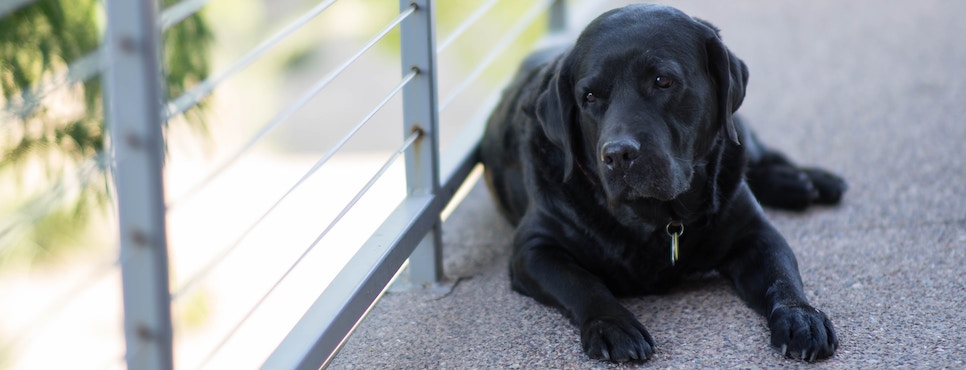Wobbler's Syndrome in Dogs
This article is written by Pet Circle's qualified veterinarian, Dr Samantha Wycherley
Contents
What is Wobblers Syndrome?

Wobblers syndromes is a disease seen in dogs that affects nerve function in the neck and causes a wobbly gait (hence the name). The technical name for this syndrome is cervical spondylomyelopathy.
What are the signs of Wobblers Syndrome?
The early signs of wobblers disease can be mild. Many dogs will start by scuffing their back feet or having a slight wobble when walking, this can then progress to showing signs of wobbliness in all four limbs. As the disease progresses even further dogs can struggle to stand. Dogs can also show signs of neck pain such as carrying their head low.
What causes Wobblers Syndrome?
Wobblers disease occurs when the spinal cord in the neck region is compressed - there are a number of different mechanisms for how this can occur but usually relate to a narrow spinal canal or a bulging intervertebral disk. This then affects the signals the nerves are sending to the limbs leading to an uncoordinated gait. In severe cases it can lead to paralysis.
Which breeds are at risk of Wobblers Syndrome?
Large and giant breed dogs are most commonly affected. Breeds that are predisposed to Wobblers include:
- Great Dane
- Dobermann
- Dobermann
- Basset Hounds
- Bull Mastiff
- Rottweiler
What are the treatment options for Wobblers?

Treatment can be either medical or surgical, or a mixture of both. Medical treatment can be used in mild cases or dogs that arenât good surgical candidates. This involves the use of steroids or anti-inflammatory drugs to reduce inflammation and spinal cord swelling.
In many cases surgical treatment will be required to help stabilise the neck and relieve pressure on the spinal cord (in the case of a bulging disk).
How can I reduce the risk of my dog developing Wobblers Syndrome?
Wobblers syndrome is primarily a genetic issue. There has been some suggestion that large breed dogs that have rapid growth can be more at risk (although this has not yet been proven). Nonetheless it's important to ensure large and giant breed puppies are on a balanced growth/puppy diet formulated specifically for large or giant breed dogs.
Puppy Food for Giant Breed Puppies
Adult food for Large Breed Dogs
Want to know more?
Arthritis in dogs: what causes it and how do I know if my dog is affected?
Obesity in pets: why it's a problem and what to do about it































